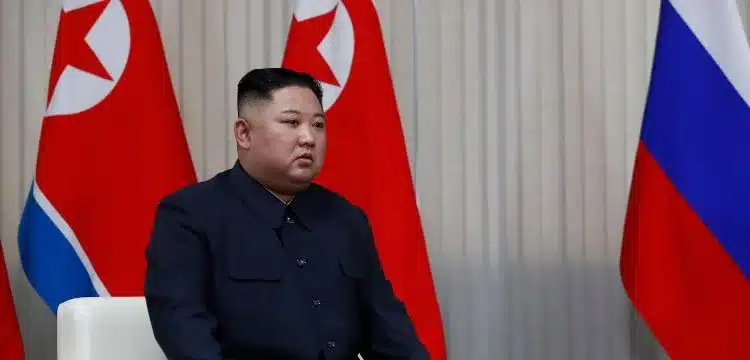[vc_row][vc_column][vc_column_text dp_text_size=”size-4″]North Korea launched what appears to be an intermediate-range missile off its eastern coast, heightening tensions in the region following recent events, including the firing of an intercontinental ballistic missile and the debut of a military spy satellite. Seoul’s Joint Chiefs of Staff reported the incident, indicating an unidentified ballistic missile heading towards the East Sea, also known as the Sea of Japan.
While the Joint Chiefs of Staff confirmed detection of the launch, they provided no further details. The Japan Coast Guard, relying on information from the country’s defense ministry, issued a warning about a potential ballistic missile launched by North Korea, urging vessels to exercise caution.
Read more : North Korea To Launch Satellites, Build Drones
This missile test follows North Korea’s recent deployment of a Hwasong-18 solid-fuel intercontinental ballistic missile into the East Sea on December 18. The timing of this apparent test coincides with rare live-fire drills conducted by North Korea near the maritime border with South Korea, leading to counter-exercises and evacuation orders for certain South Korean border islands.
Leader Kim Jong Un intensified the already strained situation by declaring Seoul as the “principal enemy” during a visit to major weapons factories earlier in the week. He issued a stark warning, expressing readiness to annihilate South Korea. This rhetoric, coupled with live-fire drills and the latest missile launch, suggests a shift in Pyongyang’s approach to Seoul, marked by an “ultra-hawkish mode,” according to analysts.
Relations between the two Koreas have plummeted to historic lows, with Kim cementing North Korea’s permanent status as a nuclear power in its constitution and conducting tests of advanced intercontinental ballistic missiles. The isolated North Korean government is strengthening its ties with Moscow, as indicated by Foreign Minister Choe Son Hui’s upcoming visit to Russia at the invitation of her counterpart Sergei Lavrov.
In the past year, North Korea successfully placed a reconnaissance satellite into orbit, with South Korea claiming Russian assistance in exchange for arms shipments related to Moscow’s involvement in Ukraine. Kim’s regime has also test-fired various advanced intercontinental ballistic missiles, including a purported solid fuel version.
Also Read : Japan alerts its missile defense system North Korea warns of satellite launch
At year-end policy meetings in Pyongyang, Kim threatened a nuclear attack on South Korea, calling for a buildup of the country’s military arsenal in anticipation of armed conflict that he warned could erupt at any time. North Korea declared itself an “irreversible” nuclear power in 2022 and remains steadfast in its commitment to maintaining a nuclear weapons program, viewing it as essential for regime survival.
The United Nations Security Council has issued numerous resolutions urging North Korea to halt its nuclear and ballistic missile programs since the country’s first nuclear test in 2006. The continued provocations raise concerns about the stability of the region and the potential for further escalation, emphasizing the urgent need for diplomatic efforts to address the underlying issues.[/vc_column_text][/vc_column][/vc_row]











